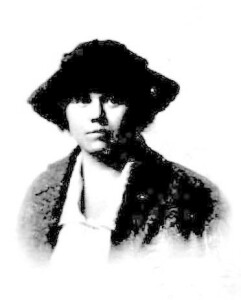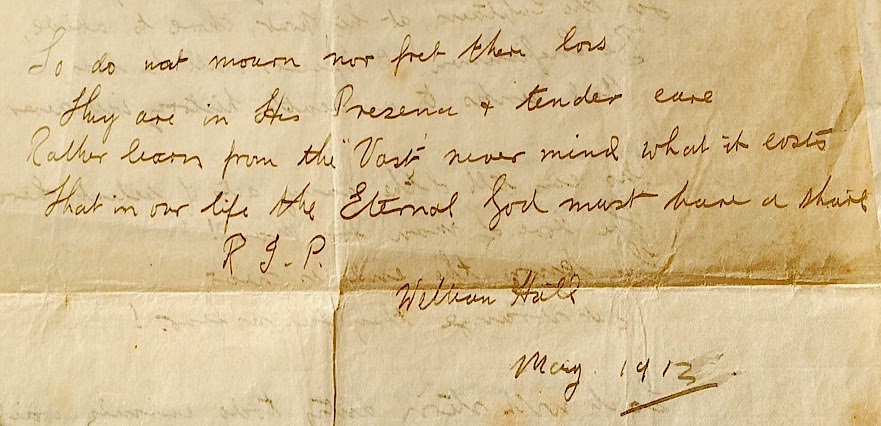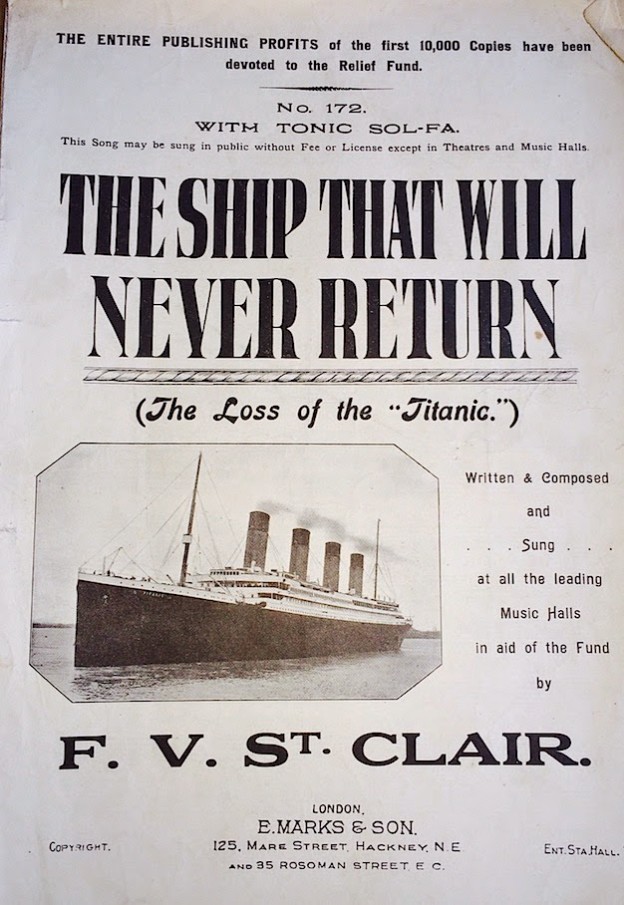 Found in the memoir Chords of Remembrance by Mathilde Verne. (Hutchinson, 1936) this account by a young woman who survived the sinking of the Titanic.
Found in the memoir Chords of Remembrance by Mathilde Verne. (Hutchinson, 1936) this account by a young woman who survived the sinking of the Titanic.
Mathilde Verne 1865 – 1936 was an English pianist and teacher, her pupil
“I remember it as if it were yesterday,” said Georgette, when we were lunching at the Embassy Club (the last place in the world to talk of tragedy.) I really don’t know what first brought up the subject, but I gradually became so absorbed in the story that the bright crowd around me vanished and in its place, I saw a sinking ship, plunging to her doom in the pitch black darkness and I almost fancied that I heard the ice tapping against the sides of the boat with shelter Georgette and her family.
“I was sharing a cabin on the deck with my cousin,” she continued, “and, as it was very cold, I went to bed early. About midnight I was suddenly awakened by two totally the dissimilar noises – one something like the tiering of calico – the other the sound of escaping steam.
“The next moment the engine stopped and, to my great relief, mother came into the cabin and rang the bell to ascertain what it happened.
“The steward appeared, as ever, efficient and unperturbed, and in reply to mothers anxious questioning he said: “Well, madam, I really can’t say what is wrong, but as there are no orders to go on deck, you had better remain where you are.”
“This was reassuring but after a little while our maid came up from her cabin, and in agitated tones, informed us that there was water in the baggage room.
“‘There’s nothing to be alarmed at,’ said mother, ‘go back to bed and get off to sleep.’ But mother was not so confident as she appeared, and as we sat wondering what on earth the noises had meant, the maid rushed back… this time making no attempt to hide her terror.
“‘My cabin is flooded out – I can’t stay there a minute longer,’ she cried. Continue reading







